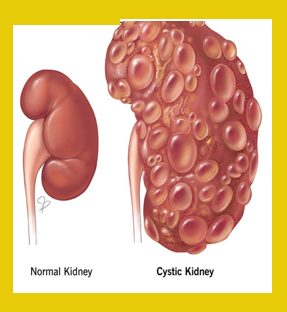Former Director Grade Scientist, Centre for Cellular and Molecular Biology, Hyderabad (INDIA), Email: pdg2000@hotmail.com, Cell: 080728 91356
www.daylife.page
Polycystic kidney disease is a genetic disorder that means it comes to child from parents just to understand this -- A genetic condition can occur when the child inherits one copy of a mutated (changed) gene from each parent. The parents of a child with an autosomal recessive condition usually do not have the condition. Unaffected parents are called carriers because they each carry one copy of the mutated gene and can pass it to their children. World over 1 in every 400 to 1,000 people are affected. Symptoms can begin in the earliest months of life, even in the womb. It tends to be very serious, progresses rapidly, and is often fatal in the first few months of life. There is no cure for this disease. Only clinicians can manage the disease by managing symptoms (pain, headaches, high blood pressure, and urinary tract infections) and preventing complications, as well as slowing the progression of the disease. One or both the kidneys may be affected. If only one kidney is affected person can survive but if both are affected it is fatal
In the last, kidney failure requires dialysis and transplantation. The cysts in polycystic kidney disease are non-cancerous growth in the form of sacs containing water-like fluid. They can grow very large. Many people with this condition have kidney failure by age 60. The average life expectancy of a patient suffering with this disease ranges from 53 to 70 years depending on their lifestyle.
The above figure showed the affected kidney which is enlarged showing cycts. Here the normal and diseased kidneys are compared.
Participants will be first asked to drink 6 8-oz glasses of water over 2.5 hours on the first day, and then about 12 8-oz glasses of water over the course of the day for one week.
They report that PKD rats that were kept on a time-restricted feeding (TRF) regimen, which results in intermittent fasting, showed improved kidney function and reduced cystogenesis (formation of new cysts), cyst expansion and fibrosis compared with a control group that consumed a similar amount of calories but were fed ad libitum (eat as you desire, food is availed all the time)
(The author has his own study and views)






